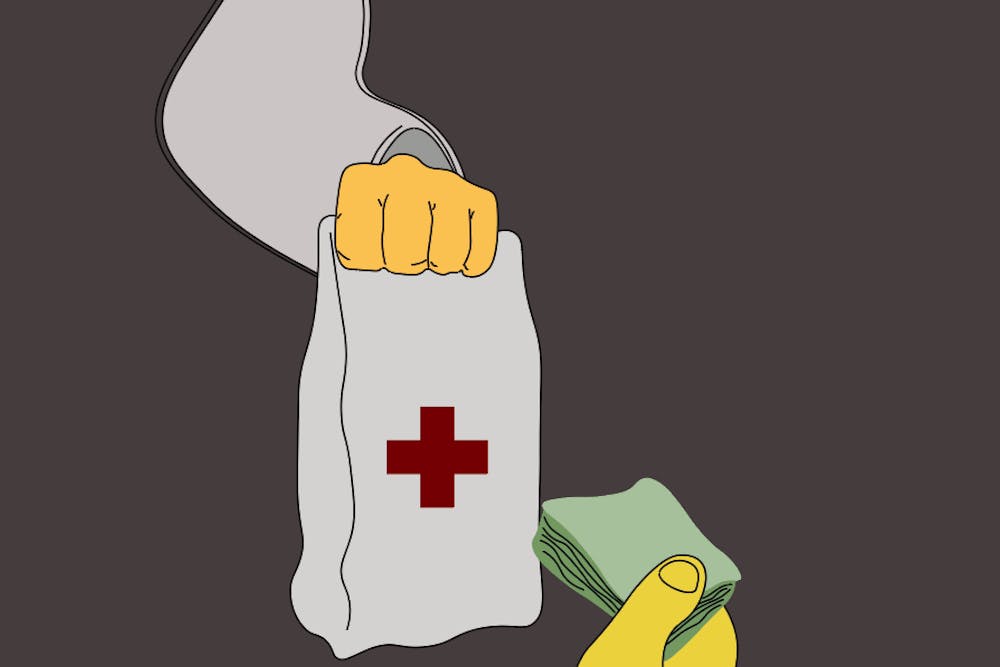ASU’s anti-drug policies are aimed at protecting students, but criminalization not only pushes substance abuse underground — it actively harms attempts to protect students from overdose.
ASU proudly has been a dry campus since the dawn of the millennium, and since 2013 has been working on producing a tobacco-free campus. While ASU is no longer allowed to criminalize the use of medical THC (marijuana) on campus by students, a harsh substance enforcement policy against other, more dangerous drugs is producing a stigma that makes students less safe.
Arizona is experiencing the national opioid crisis, brought on by the superfluous prescription of pain killers specifically designed by the pharmaceutical industry. Campus is not immune, but campus policy forces students to remain hidden.
Recovery has come a long way in recent years, with treatments like Alcoholics Anonymous gaining more skeptical press as scientific, medically-informed treatments gather publicity. Particularly in Europe but now in cities like Seattle, this has led to a medicalization of substance abuse, including nurses that watch over users in locations deemed “fix rooms.”
Alongside this changing public perception has been an increase in medical fixes. In particular, Naloxone has shown promise as a way to prevent deaths from overdoses that is easily accessible to the public after a brief training.
Naloxone is a medication that blocks the chemical cascade that leads to overdose symptoms, reversing opioid overdoses. An intervention is available to the cause of death for 50,000 Americans in 2015, but stigma toward substance use disorder has caused a culture that is unable to adequately distribute it.
Associate Vice President of ASU Counseling Services and Health Services Aaron Krasnow, Ph.D, said that ASU does not yet have official programming to teach the spread of this life-saving intervention.
"We are definitely aware of the medical importance of Naxolone and are in conversations with numerous people on and off campus on opportunities to ensure the prevention and treatment of drug related medical issues,” Krasnow said.
While student culture is constantly decried as endorsing the overuse of alcohol and other illicit substances, student culture alone is not responsible for this stigma.
ASU needs to reconsider criminalization as a possible source of stigma. Government policy, stigma and public health are complex topics, but looking to HIV provides a good model to understand today's opioid crisis.
While HIV infection rates have remained stable or risen in this state, treatment has allowed the virus to recede into the background. Prior to medication, however, criminalization statutes allowed for states to feel they were doing something.
Yet instead of reducing HIV transmission, criminalization statutes have reduced the ability of the public health apparatus to conduct testing — contributing to the fact that one in eight Americans living with HIV is unaware of their status in 2017.
Criminalization and other supposedly suppressive policies simply push those with health problems out of the public eye. Illicit substance policy should be viewed in no different a manner.
By reframing illicit substance use disorders as a public health problem, rather than a personal failing, the University can overcome stigma towards recovery and move the conversation forward.
That's the first step in protecting students. By overcoming stigma, students will be more able to access life-saving medication.
As the conversation surrounding recovery continues to increase, it's clear that waiting for a concept of rock bottom is detrimental. Changing criminalization policies will make that change a possibility.
It's time for ASU to catch up to medical innovation. Students' health and safety depends on it.
Reach the columnist at benjamin.steele@asu.edu or follow @blsteele17 on Twitter.
Editor’s note: The opinions presented in this column are the author’s and do not imply any endorsement from The State Press or its editors.
Want to join the conversation? Send an email to opiniondesk.statepress@gmail.com. Keep letters under 500 words and be sure to include your university affiliation. Anonymity will not be granted.
Like The State Press on Facebook and follow @statepress on Twitter.




